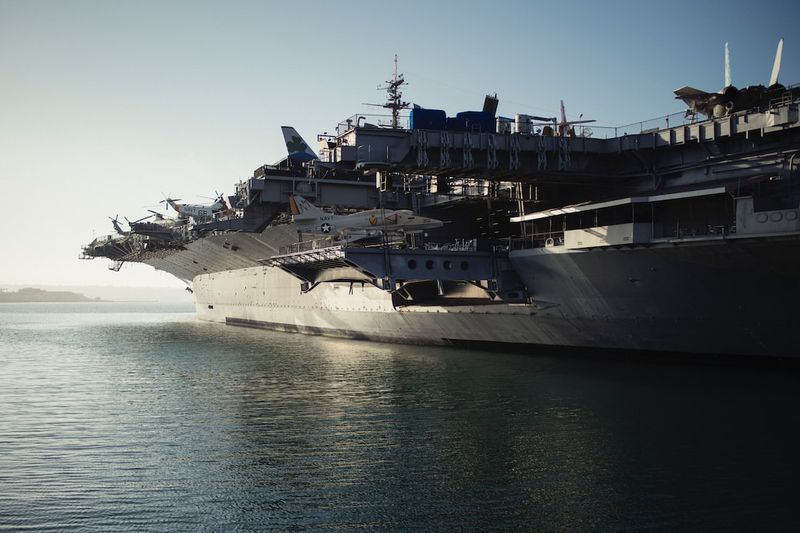The Potential Withdrawal of US Troops from Niger and Its Implications
Introduction
The United States may soon withdraw troops from Niger in the aftermath of a military coup that overthrew the democratically elected government in late July. This move could mark a significant change in the American military presence in the country. While a final decision has not yet been made, it is possible that up to half of the 1,100 troops stationed in Niger could be pulled out. The Pentagon has emphasized that its goal is to maintain a military presence in Niger for as long as possible, but logistical challenges and the evolving political situation pose significant hurdles.
The Capacity Problem
The issue of troop withdrawal from Niger is primarily rooted in a capacity problem. The Pentagon recently announced the relocation of troops from Air Base 101 near Niamey, the capital of Niger, to Air Base 201 near Agadez. This decision was made as a precautionary measure following the military takeover. However, Air Base 201 is significantly smaller and lacks the capacity to house all of the troops, particularly those involved in operating drones for intelligence, surveillance, and reconnaissance (ISR) flights in the region. As a result, some troops will have to leave the country.
The Importance of Niger
Niger plays a pivotal role in American military operations in the region. Its strategic location allows the United States to conduct ISR flights, enabling the monitoring of violent extremist activity in neighboring countries such as Mali and Burkina Faso. These surveillance efforts are crucial for gathering intelligence and countering terrorism in the Sahel region. Given the ongoing instability and the threats posed by extremist groups in the area, maintaining a military presence in Niger has been a priority for the United States.
The Political Context
The military coup in Niger has complicated the situation. While the Biden administration has been exploring ways to retain US forces and assets in Niger to continue anti-terror operations, the likelihood of the military junta returning power to the democratically elected president seems increasingly slim. The United States faces diplomatic challenges in dealing with the military government and navigating its long-term relationship with Niger.
The Way Forward
As the United States considers withdrawing troops from Niger, several factors must be carefully weighed. The potential reduction in military presence raises concerns about the effectiveness of counterterrorism efforts in the region and the ability to gather timely and actionable intelligence. Additionally, the withdrawal of troops may impact regional stability and potentially create a power vacuum that could be exploited by violent extremist groups.
The Biden administration should engage in diplomatic efforts to pressure the military junta in Niger to restore democratic governance. Simultaneously, it is essential to maintain a balance between advocating for democratic principles and safeguarding regional security interests. Open lines of communication and negotiations should be pursued, emphasizing the importance of international norms and the rule of law.
It is crucial for the United States to continue supporting Niger in its fight against terrorism and to help build the capacity of its security forces through training and resources. Investing in Niger‘s stability and development will contribute to long-term security in the region. Additionally, partnerships with other international actors, such as the United Nations and regional organizations, should be strengthened to promote a coordinated and comprehensive approach to counterterrorism efforts in the Sahel.
Conclusion
The potential withdrawal of US troops from Niger comes at a critical juncture for both the country and the Sahel region. Balancing the need for regional stability, counterterrorism efforts, and democratic governance is a formidable challenge. The United States must navigate this complex situation with a long-term perspective, emphasizing diplomacy, dialogue, and cooperation. By actively engaging with Niger‘s military government and proactively supporting democratic processes, the United States can contribute to stability and security in the region while safeguarding its national interests.

<< photo by Michael Afonso >>
The image is for illustrative purposes only and does not depict the actual situation.
You might want to read !
- Pentagon Considers Halving U.S. Troop Presence in Niger: What Does This Mean for Regional Security?
- “The Chicks’ Triumphant Calgary Concert: A Moving and Fearless Comeback”
- Concert Review: The Chicks’ Triumphant Calgary Comeback Showcases Unyielding Resilience and Empowered Performance
- France Secures Victory Against Republic of Ireland in Euro 2024 Qualifiers
- “Hurricanes’ Controversial Hiring: Bill Peters Returns to WHL, Aliu Raises Concerns”
- Canada | Powerful 6.8 Magnitude Earthquake in Morocco Claims at Least Thirty Lives
- Colombia Dominates Venezuela in Impressive Victory: Borré Shines with Goals and Highlights
- Bridging the Gap: Can BRICS Overcome Global South’s Apartheid?
- The Looming Threat: China’s Ailing Economy and its Impact on the US
- Russia’s Quest for Stronger North Korean Ties: A Live Briefing on Ukraine’s Role




